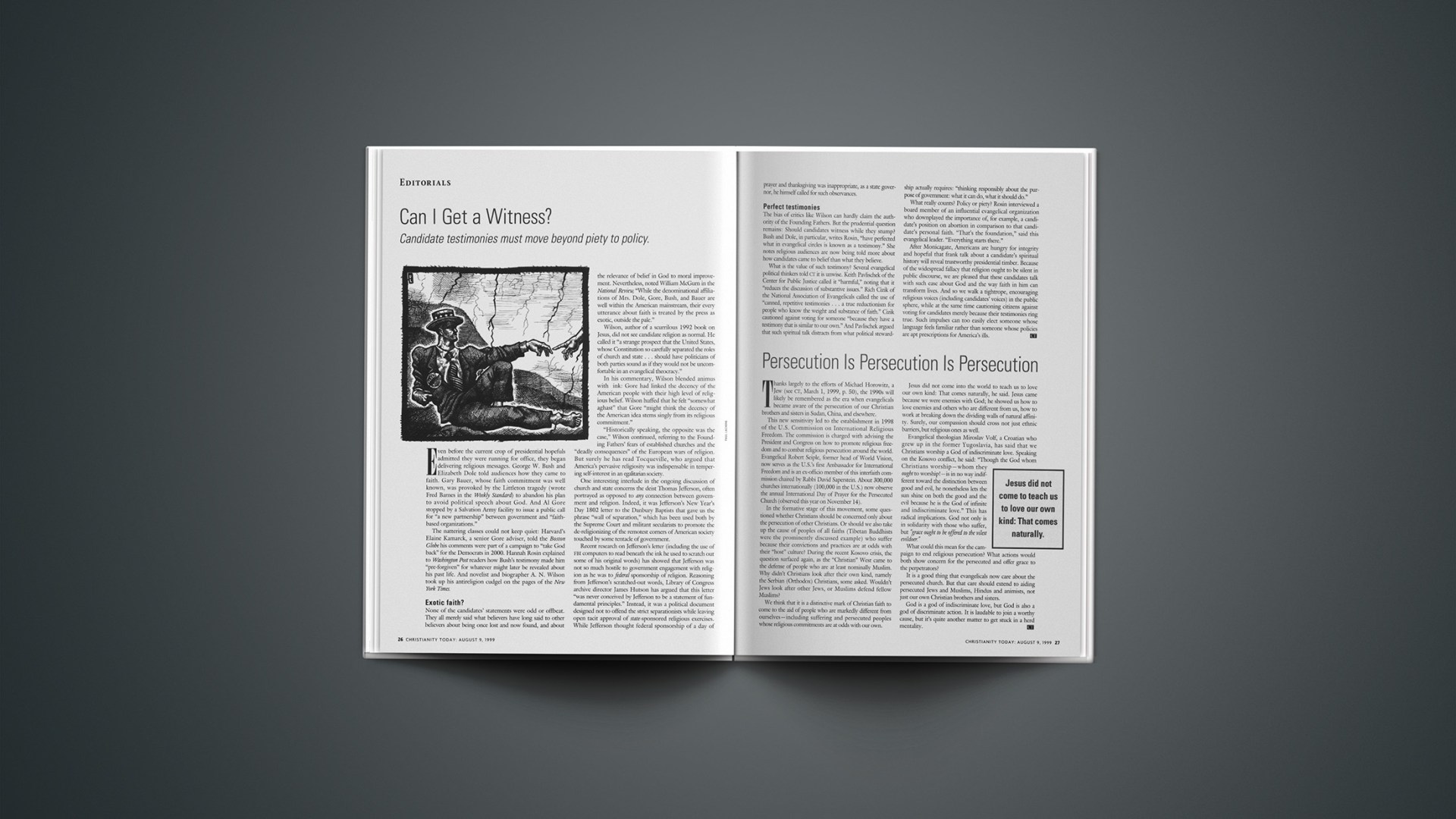Thanks largely to the efforts of Michael Horowitz, a Jew (see CT, March 1, 1999, p. 50), the 1990s will likely be remembered as the era when evangelicals became aware of the persecution of our Christian brothers and sisters in Sudan, China, and elsewhere.
This new sensitivity led to the establishment in 1998 of the U.S. Commission on International Religious Freedom. The commission is charged with advising the President and Congress on how to promote religious freedom and to combat religious persecution around the world. Evangelical Robert Seiple, former head of World Vision, now serves as the U.S.’s first Ambassador for International Freedom and is an ex-officio member of this interfaith commission chaired by Rabbi David Saperstein. About 300,000 churches internationally (100,000 in the U.S.) now observe the annual International Day of Prayer for the Persecuted Church (observed this year on November 14).
In the formative stage of this movement, some questioned whether Christians should be concerned only about the persecution of other Christians. Or should we also take up the cause of peoples of all faiths (Tibetan Buddhists were the prominently discussed example) who suffer because their convictions and practices are at odds with their “host” culture? During the recent Kosovo crisis, the question surfaced again, as the “Christian” West came to the defense of people who are at least nominally Muslim. Why didn’t Christians look after their own kind, namely the Serbian (Orthodox) Christians, some asked. Wouldn’t Jews look after other Jews, or Muslims defend fellow Muslims?
We think that it is a distinctive mark of Christian faith to come to the aid of people who are markedly different from ourselves—including suffering and persecuted peoples whose religious commitments are at odds with our own.
Jesus did not come into the world to teach us to love our own kind: That comes naturally, he said. Jesus came because we were enemies with God; he showed us how to love enemies and others who are different from us, how to work at breaking down the dividing walls of natural affinity. Surely, our compassion should cross not just ethnic barriers, but religious ones as well.
Jesus did not come to teach us to love our own kind: That comes naturally.
Evangelical theologian Miroslav Volf, a Croatian who grew up in the former Yugoslavia, has said that we Christians worship a God of indiscriminate love. Speaking on the Kosovo conflict, he said: “Though the God whom Christians worship—whom they ought to worship!—is in no way indifferent toward the distinction between good and evil, he nonetheless lets the sun shine on both the good and the evil because he is the God of infinite and indiscriminate love.” This has radical implications. God not only is in solidarity with those who suffer, but “grace ought to be offered to the vilest evildoer.“
What could this mean for the campaign to end religious persecution? What actions would both show concern for the persecuted and offer grace to the perpetrators?
It is a good thing that evangelicals now care about the persecuted church. But that care should extend to aiding persecuted Jews and Muslims, Hindus and animists, not just our own Christian brothers and sisters.
God is a god of indiscriminate love, but God is also a god of discriminate action. It is laudable to join a worthy cause, but it’s quite another matter to get stuck in a herd mentality.
Copyright © 1999 Christianity Today. Click for reprint information.










